Resident Evil 4 Helped Me Embrace My Love of Horror
Pushing past the fear

We had a sunroom in my childhood home that was windows on all but one side. It was where I spent the majority of my early teenage years sneaking in late-night marathons of Adult Swim and playing too many hours of video games.
Being surrounded on three sides by glass was great in the daytime, allowing an unobstructed view of our backyard. But at night the landscape was transformed, becoming a theater of shadows and silhouettes.
I was playing Resident Evil 4 in that room, gripping the controllers tautly and with my focus narrowed to a cross-hair, too preoccupied with escaping the area alive to notice a soft tap at one of the windows. When it came again, I stared out into the dark. Had my mom let the dog out? No, she'd had to have gone past me to do that. Was it the wind? I frowned and kept playing.
I heard it again. And again. Finally, I paused and slid down from the couch to sit on the floor as if made of jelly, keeping my back to the plush furniture. I tried to be reasonable. My flight response remains to this day a nearly prescient phenomenon, cat-like in quality, so I wondered if it would be an overreaction if I scrabbled from the room. A knock came this time, right behind where I'd been sitting on the couch, and I spun to see a human shadow outside, lurking tall against the darkness. A moment later I knew who it was: my father. He'd circled from the garage to the backyard to mess with me. He did this a few other times while I played the game, but with every subsequent knock, I grew a bit wiser to the shtick.
I've inherited his love for these little scares, and it was the warmth of those nights that taught me a very valuable lesson about fear: that it can be fun to be scared.
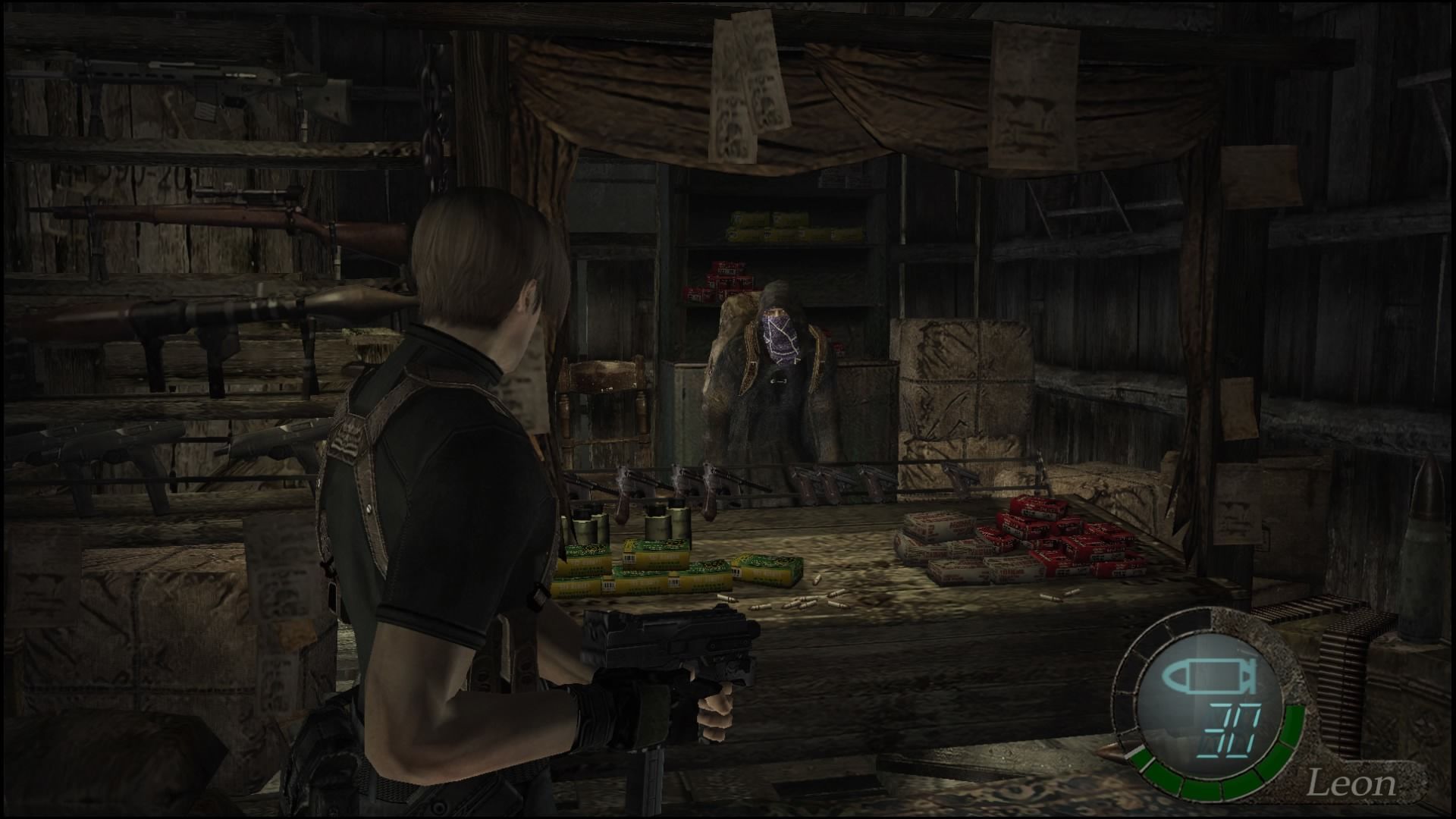
As a child, I was proudly anti-horror, which was strange considering I sure was obsessed with it. I loved hearing ghost stories at camp. I couldn't wait for fall and the haunted hayride season to start. I hosted one or two amateur seances. And yet, outside of those spooky joys, I never counted myself a fan of horror as a whole. I chalked it up to a fear of violence and blood. I also couldn't watch a horror movie without it playing out again in my head at night, the actors splayed across my ceiling like shadow puppets. I could hear the creaking of footsteps in the hall, see the shadow passing beneath my door, and feel the arm reaching up from under my bed to grab for purchase at my foot.
This was why I steered clear of straight horror and ventured into mystery: there was safety in solving them. It was better to know there was a man behind the mask.
It took me until college to realize that there was another element at play that made me so averse to engaging in horror films and the wider cultural conversation around them, and it had to do with control and autonomy.
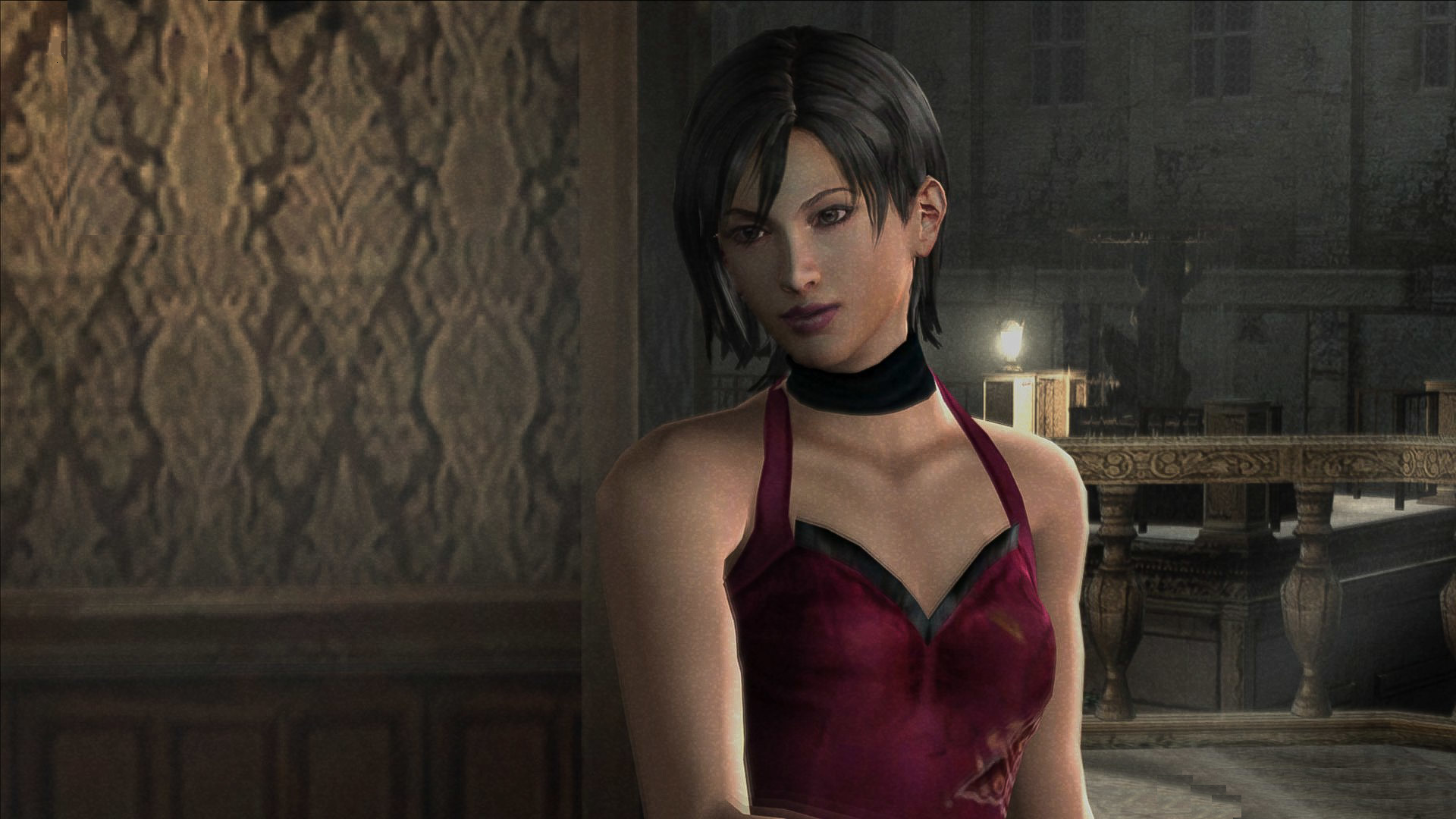
Most horror films I saw relished violence in a way that felt carnally evocative as if I were expected to watch these people get sawed in half and stabbed to death for two hours and just walk out of the theater and not let it linger. It always lingered. I always felt terrible for them. And then there were movies like Last House on the Left and The Hill Have Eyes, which were gratuitously cruel in their treatment of female victims, and I have never watched these movies for that very reason.
Horror movies were something I avoided stoically up until my early twenties because I was far too sensitive to the real-life implications of what slasher films could frame as very nearly slapstick, and that's what I figured horror as a visual medium was always going to be. There was just an element I couldn't connect with, a joy in depravity I couldn't share.
It became a genre I avoided, one where women screamed as a knife cut across their vision, where people died in increasingly uncomfortable ways, and where girls ran half-clothed down suburban streets to escape from a masked killer. It was an ambiance of excessive splatters of red smeared on the walls, carpets, and doors. It was hatchets, axes, machetes, and chainsaws. It was a sneaking evil. I had no control over it and, more often than not, I'd see myself in its victims. Even outside the slasher genre and into the paranormal, possessions always centered around girls and women--their bodies bent in twisted angles, their voices gurgling with demonic tenor, always the reluctant mediums for the message or the source of some great evil. It didn't help that I was pretty religious as a child, and horror is a bit anathema to religion.
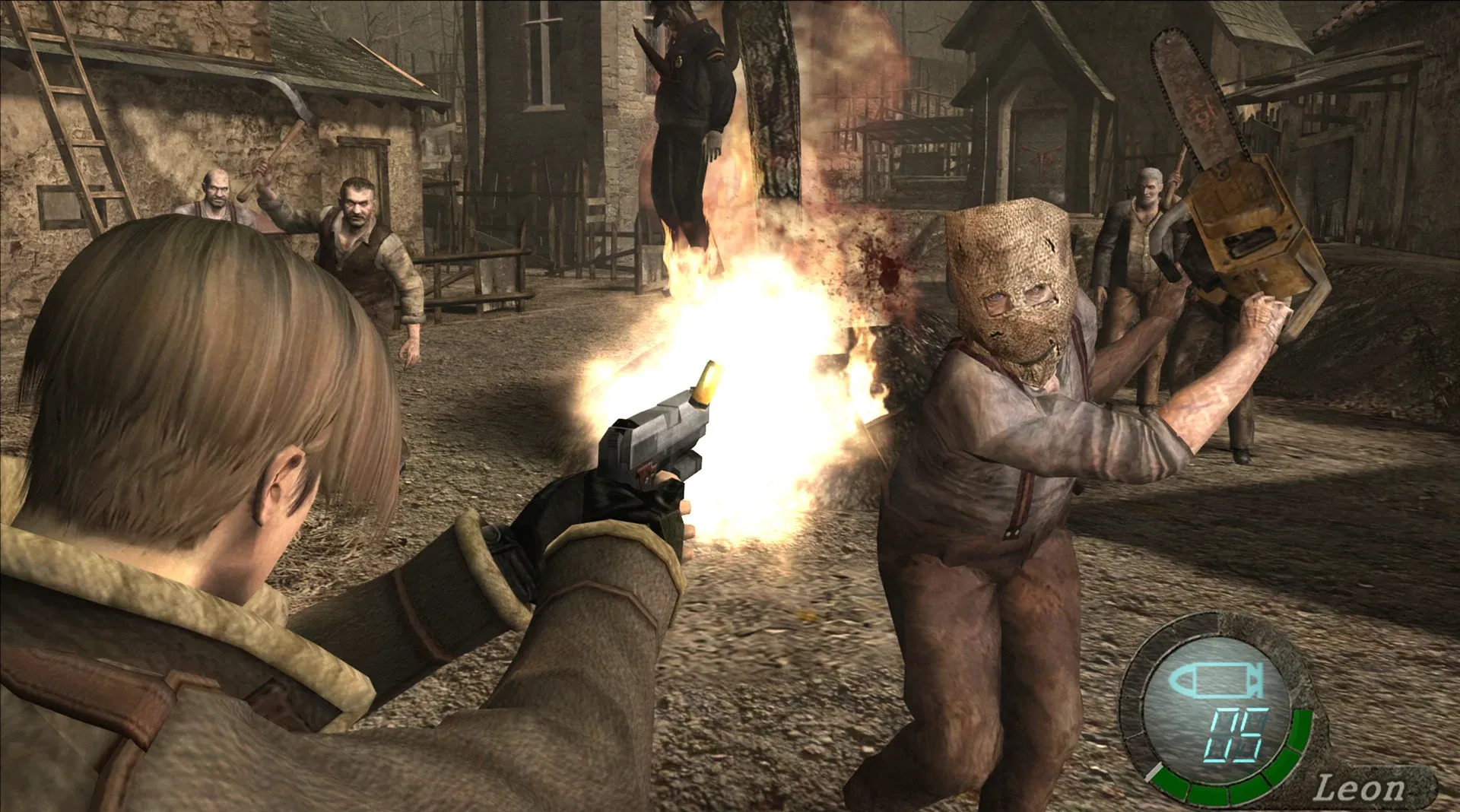
I was around fourteen, relaxing in a friend's basement when one of the older teens suggested we play Resident Evil 4. I knew little about it outside of it being a horror game. I knew it had zombies. I knew you shot them. I knew there was a lot of blood involved.
Be cool, was my first stymied self-accusation, and so I tucked my hands between my knees and kept my chin in the collar of my sweater as we shut the lights off and pressed play. Should I call my parents for a pickup? I didn't want to go home. These were cool people, good friends, and I wanted to seem like I could hang.
I watched the opening scene through the shutter of my fingers pressed against my eyes. I watched the umbrella logo fall, shattered after Leon's recount of Racoon City. I watched the camera pan to where he stared pensively out the grimy window of a Spanish police car (oh, he was pretty!), and immediately I drew my hands from my face. I knew I would have nightmares, and that I'd likely not even enjoy watching them play, but I was now intrigued.
Oh, I had the nightmares, but days later I was begging my parents to let me buy the game on my Wii.
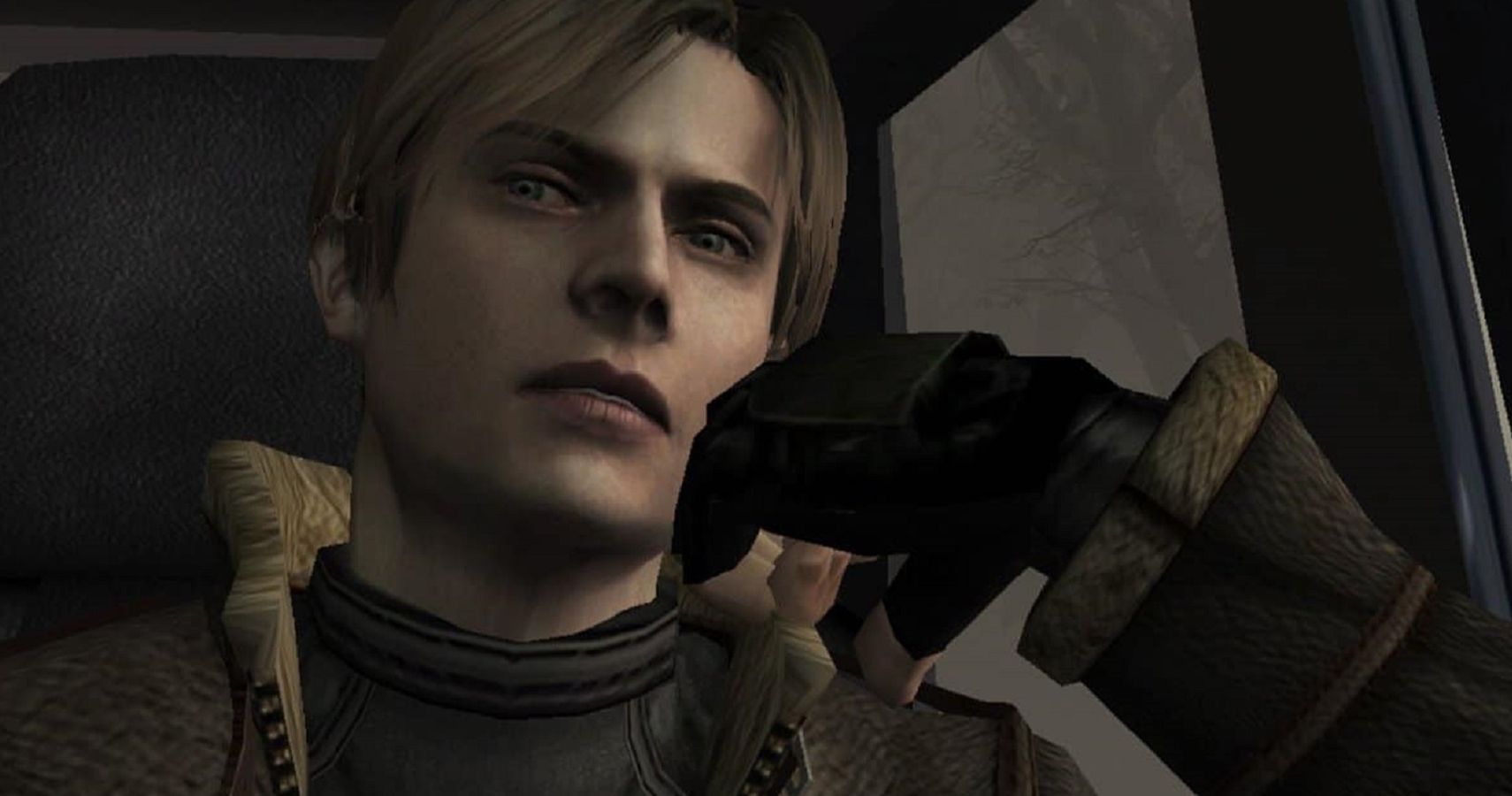
Much like Nancy Drew allowed me to explore the creepier elements of the mystery genre, Resident Evil 4 taught me to embrace the shock-value absurdism of horror itself. To live outside of the fear and seriousness I treated death with, and to let go of the staunch binary of lawful morality I so often employed in games and in media critique in general.
My first few experimental attempts to beat the starting village area resulted in me getting sawed down the chest by a man with a bloody burlap sack on his head. I tried again, choosing a playstyle that symbolizes quite well my approach to anxiety in general--put my back against the wall so I'm not surprised by attacks and make sure I can see everything coming towards me.
My tepid initial playthrough, which involved much handwringing over killing victims of a terrible illness, eventually evolved into a mindless shooting smorgasbord I played while idly sipping Sprite.
For these few, brief hours I wasn't seeing myself as a terrified, nightdress-clad girl cowering from a killer--I was armed, I was snarky, and I was shooting first.
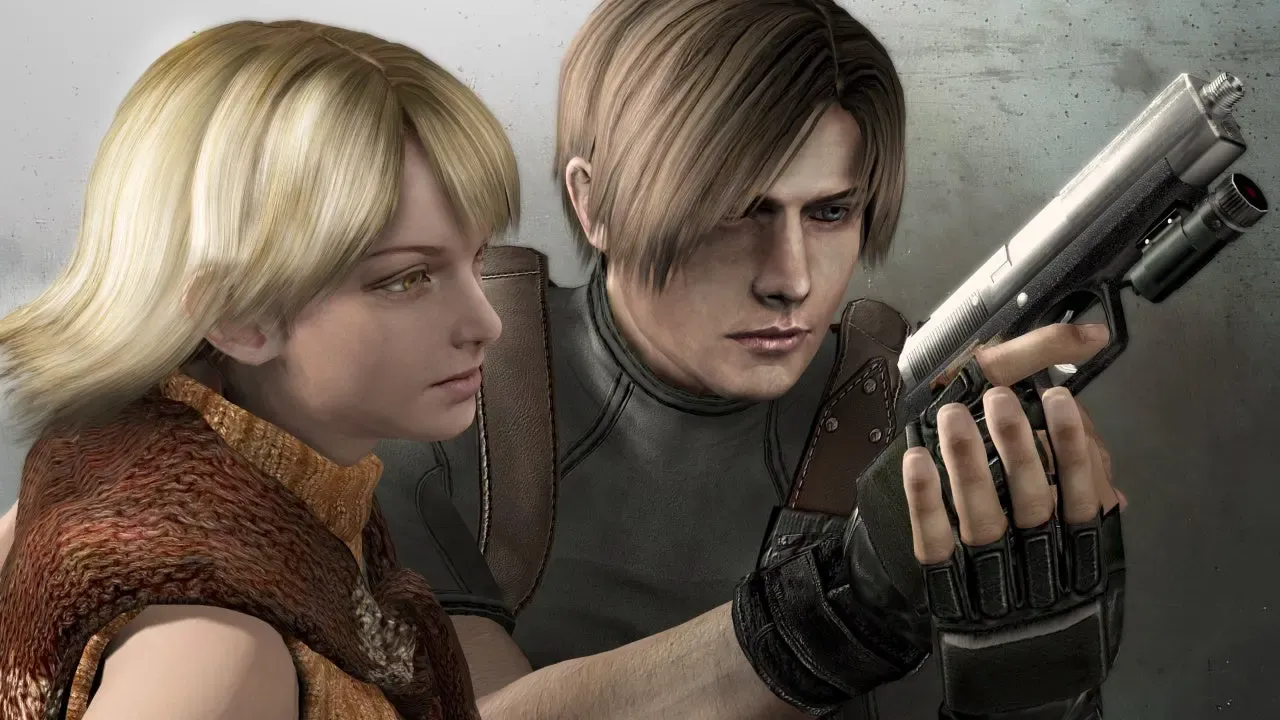
Resident Evil 4's fun is in the absurdity of its premise, the personality of its characters, and the comically campy but still self-serious execution of its plot. It is a B-movie game through and through. There are twisted villains, companions that swoop in for split-second rescues, and a ridiculously choreographed knife fight that I was obsessed with. There are booby traps, plentiful uses of military jargon, sexual tension, ritual sacrifices, and giant salamanders. This game has it all. There's a merchant who pops up in the most convenient and strangest places, who reveals his wares with a creepy yet endearing "wanna buy a watch" energy. My parents and I still quote him to this day.
Full disclosure: if something is cheesy, I'm inclined to love it. Especially when that cheesiness is unironic. In Resident Evil 4 I saw the start of what I would come to appreciate about old-school slashers, and now I can look back at movies like Leprechaun and Chucky (both of which I caught glimpses of as a child and both of which gave me nightmares) and understand how ridiculously fun they are. Although the game gave me what the movies never did: the ability to punch back against fear.
Maturity has also alleviated my brooding relationship with death, something that prevented me from engaging in the camp, and it was Leon's snide little comments to every gross-out villain that helped paved the way.
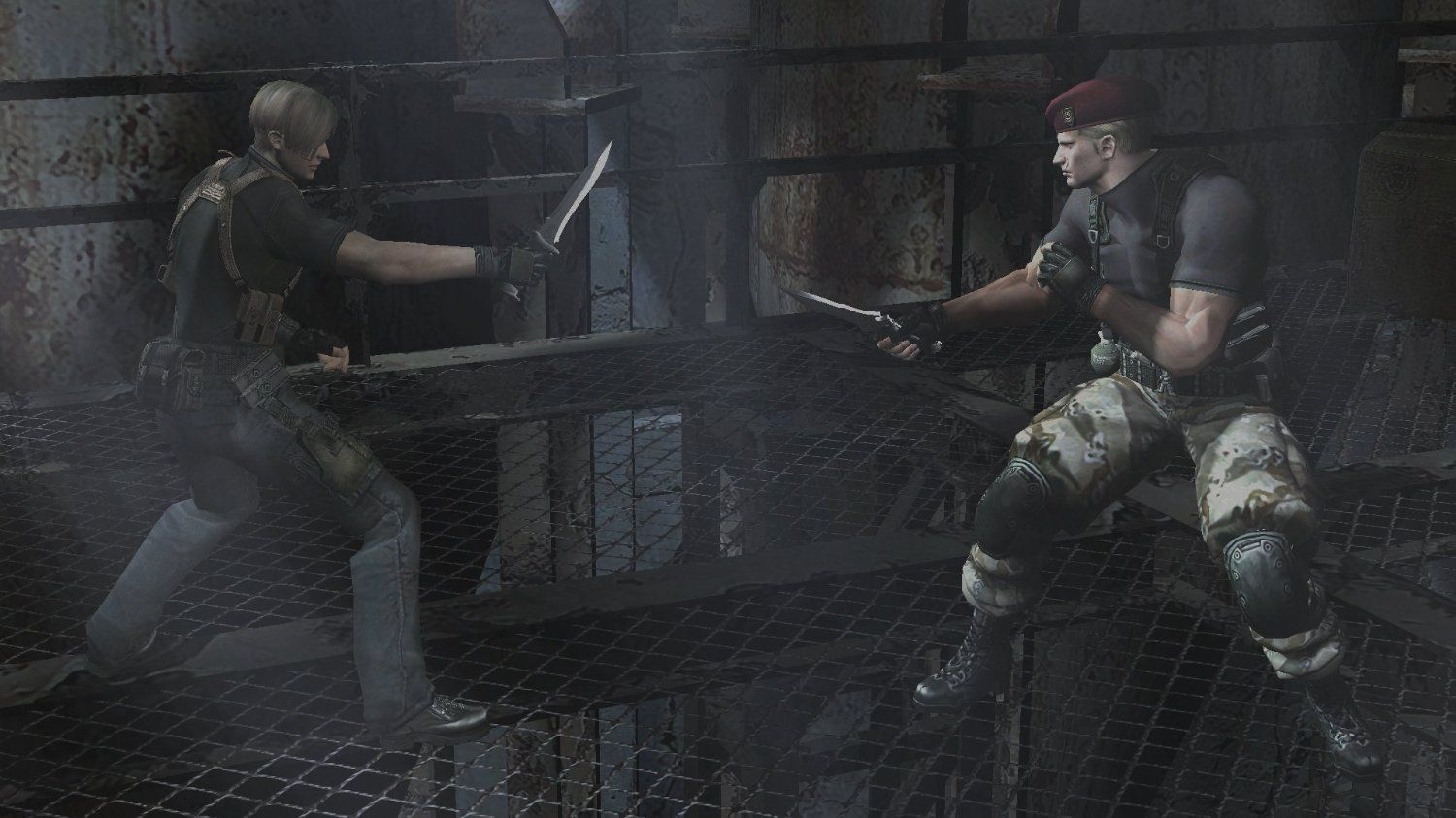
Resident Evil 4's zombies are notoriously 'splodey. They often feature oddly placed body-eyeballs that roll in their sockets with frantic uselessness, limbs transmogrified into tentacles, heads ruptured like watermelons wrapped too tight with rubber bands, and all of it involving the most heinous explosion of bile imaginable. It is pure body horror. I watched most of these grotesque transformations with more disgust than fear when I first played, but eventually, they were just enemies I had to shoot. Gross, but beatable. Just another day in the life. I made headshots in quick succession just to hear that satisfying splatter of muck on the wall.
The biggest source of frustration in the game was its female companion, which was ironic, considering my convoluted relationship with horror was and is partly due to its treatment of women. But Ashley Graham, the President's daughter, resident damsel in distress, and potently useless NPC, was not someone I feared for nor related to. I had an impatient if affable resentment for the character. Often I'd groan or laugh whenever she was scooped up by an enemy or mowed over by an obstacle because it was often very funny. And that's what deaths were in this game: sometimes hilarious.
I grew far more numb to seeing Leon die the more I played, of course, but I also shoved against my normal moral guideposts in order to do some questionable things: like shooting Ashley or the merchant or, heaven forbid, one of the cows to just to see if I could. I was a little reprobate as Leon, gleefully slipping into the shoes of a glum military peon, hosting fire in my eyes as I mowed down the undead and shit-talked my enemies with mirthful tenacity.
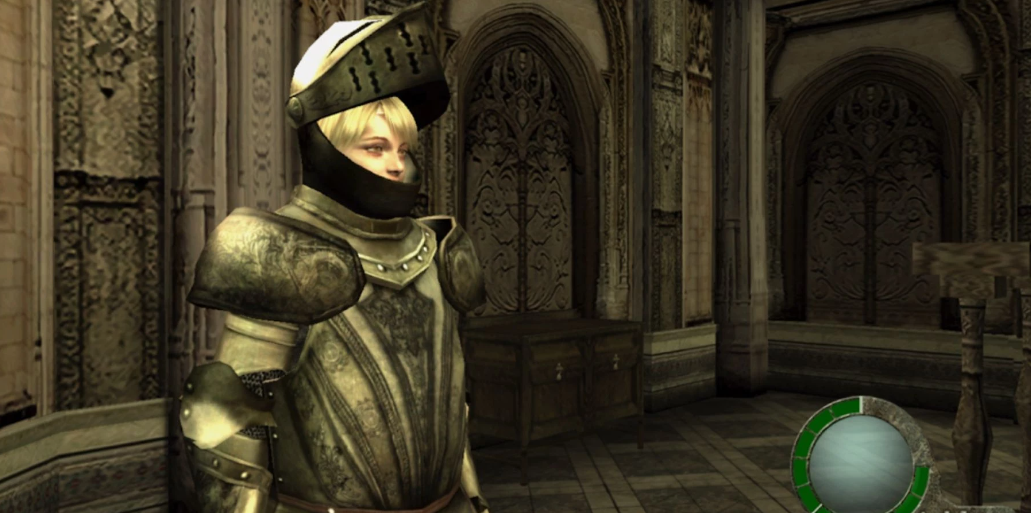
I could practically speed run Resident Evil 4 at one point, even on the clunky Wii controllers (which I miss dearly), and could yawn through levels with ease. When I got the endgame extras in the form of unlimited ammo and the ability to shove Ashely into a suit of armor, the game took on new levels of zaniness. Enemies would drop Ashley instantly because she was too heavy, falling over in the process, which would play out in a Benny Hill-esque series of attempts. I could leave her in dangerous situations (and I would do this--on purpose) and she'd emerge unscathed.
Resident Evil 4 is the only game of its kind that I've beaten multiple times and one of the very few that I grew to know like the back of my hand. Like every other fan, I've purchased it on different platforms.
Resident Evil was one of the first horror franchises I grew to love unabashedly and with gusto, one where I embraced the carnage and craved the scares. In recent years I've developed my longstanding passion for the paranormal in gothic literature, exploring female-written stories that center on the terror of love, loss, and life. I adore horror in the form, specifically, of whatever the hell Mike Flanagan's managed to do because I count Haunting of Bly Manor and Midnight Mass among some of my absolute favorite shows of any genre. I owe a great debt to my always steady interest in the paranormal, but I also owe it to Leon S. Kennedy: the first character in any horror property that I wanted to be.
Resident Evil 4 remains one of my favorite games of all time. It opened the door for me to explore my interest in horror with bravery. It helped me embrace the dark humor of death by brutally murdering me dozens of times with cold indifference. And yet I couldn't wait to play.
And, come the remake's release in March of 2023, I'll don my bomber jacket and do it all over again.
